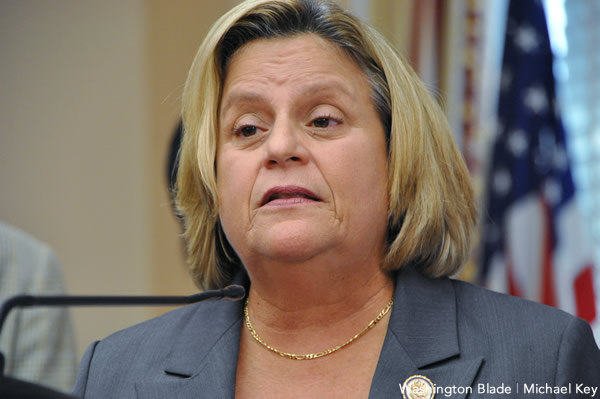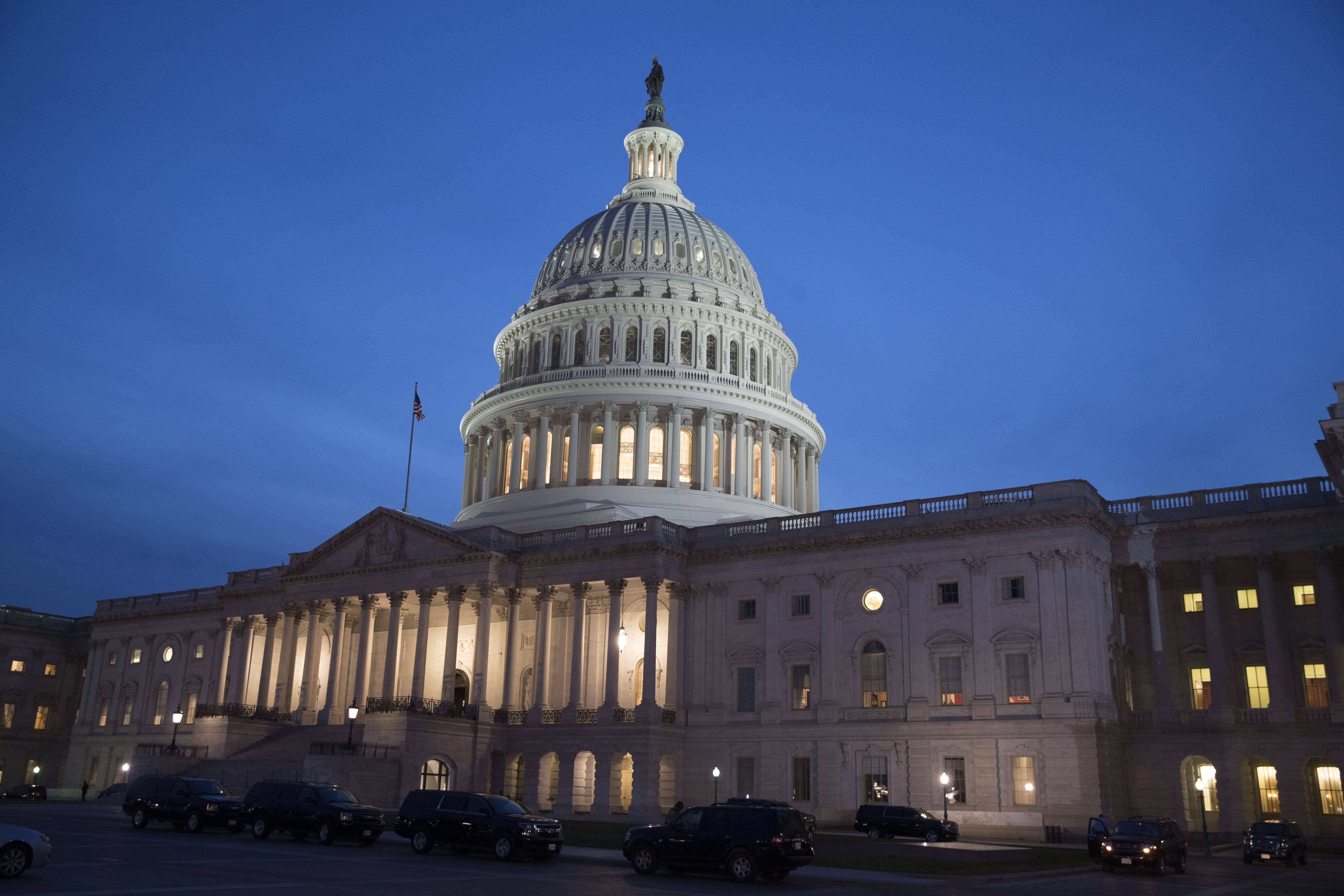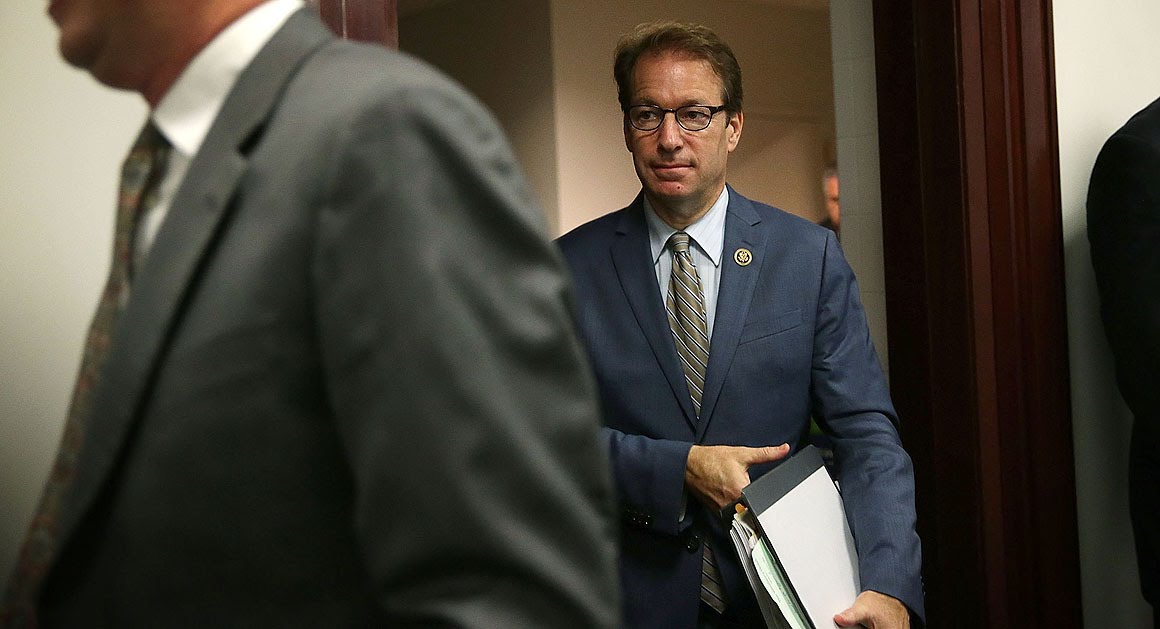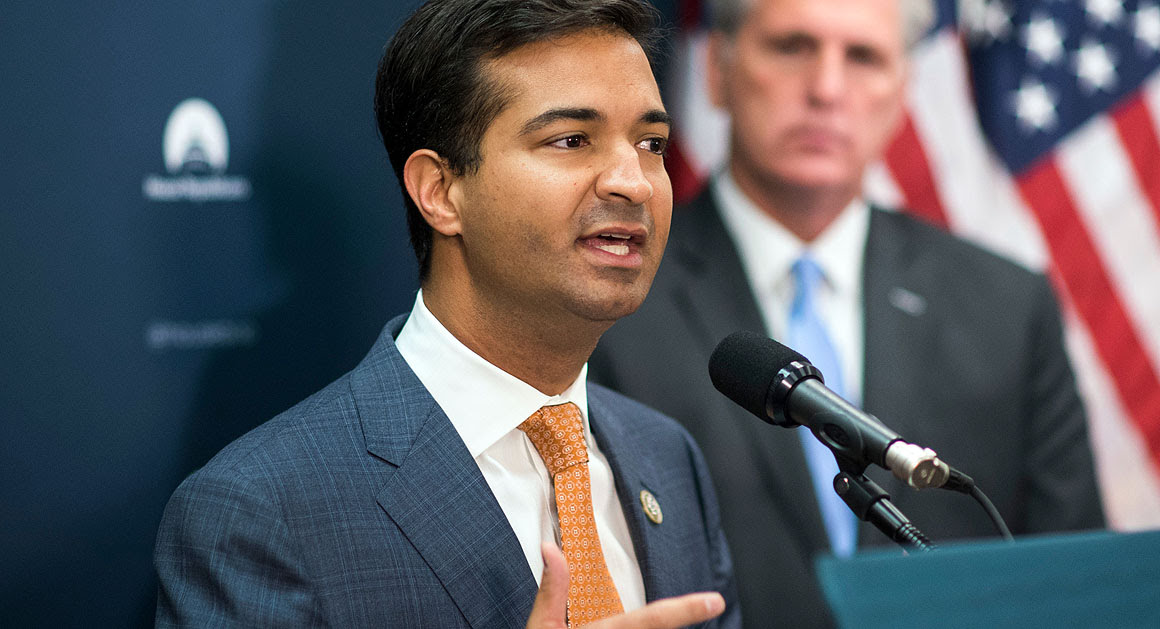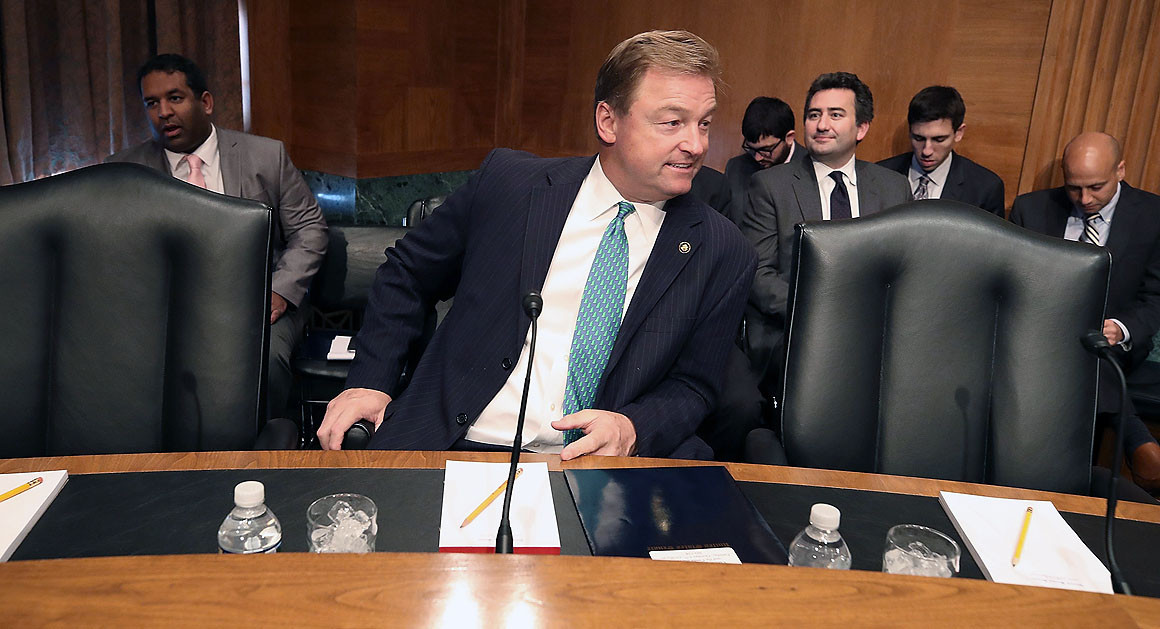Hopefully these will turn out to be good candidates and not the liberal version of the batshit teaparty folks. The article says they are strong candidates tho...
Up to 1,000 Democratic candidates are about to make the 2018 congressional primaries completely insane
The 2018 midterms are still 561 days away, but an unprecedented early surge of Democrats have already declared their candidacies for the House of Representatives, setting up what will likely be one of the longest and most crowded series of House Democratic primary campaigns in memory.
Already 408 Democrats have thrown their hats into the ring, a 58 percent increase over the 259 who had declared by this point in the run-up to the 2014 midterms. And several hundred more candidates are likely to join races across the country as the Democratic Party and multiple outside progressive groups recruit their own candidates. This tsunami of Democratic challengers will likely make it more difficult for President Donald Trump to pass his legislative agenda as members of Congress — Republicans and Democrats alike — will be wary of casting votes that provide ammo to progressive Democratic challengers.
Contrary to fears among some liberals that the anti-Trump resistance movement would start and stop with marches and memes, the surge of energy and potential candidates is letting dispirited Democrats dare to believe they could win the 24 seats they need to reclaim the House majority for the first time since 2010.
A spokesperson for the Democratic Congressional Campaign Committee (DCCC, or “D-trip” as it’s often called in Washington) told VICE News that the committee is in serious talks with more than 300 prospective candidates in about 70 Republican-held and open districts around the country. About 90 percent of those recruits, the DCCC said, have yet to file declarations of candidacy with the Federal Election Commission.
And this is just the beginning. The liberal group Brand New Congress, for example, is recruiting and training dozens of candidates across the country to primary-challenge Democratic and Republican incumbents, with a goal of eventually recruiting 200 House candidates. The progressive women’s group Emily’s List told VICE News that they expect to recruit several dozen candidates as well, some of whom will come from the DCCC’s pool.
Normally, DCCC recruiters must fly across the country for several months and camp out in swing districts interviewing and prodding “good profile” candidates to run. But the DCCC has been inundated with what they say are very strong recruits from districts across the country, including traditional Republican strongholds.
“I know what it’s like when you have to go out in these districts and spend months and months before you find someone who’s willing to run,” said DCCC spokesperson Meredith Kelly. “That is not at all the case this cycle. People are coming to us.”
At least 140 new Democrats have already begun their campaigns since Trump’s inauguration, many in places where Democrats aren’t usually expected to compete. Some of them are people who have run previously and lost, but the majority are political novices, many of whom emerged from newly minted anti-Trump groups. Many also do not fit the Democratic Party’s typical focus-grouped profile for recruitment.
They include several 27-year-olds, a former writer for The Onion, a 34-year-old Ph.D. student whose campaign staff is made up mostly of friends from Semester at Sea, and a woman who, fitting the times, goes by the name Mad.

Patrick Nelson, a 27-year-old former field director for New York's 21st district, is running to beat 32-year-old Republican Elise Stefanik.
Patrick Nelson, a 27-year-old who served as a delegate for Sen. Bernie Sanders at the Democratic National Convention last summer, was a staffer in the New York State Assembly and worked for the last two Democratic candidates in New York’s 21st District, both of whom lost.
Fed up, he decided to announce his own candidacy this year, and announce early. When asked about his qualifications, he told VICE News that he “would hesitate to think there is any person in the world that has knocked on more doors or called more people than I have in the 21st District. People of our generation have created multi-billion-dollar businesses; we are very capable.”
If Nelson wins the nomination next year, he will face off against the youngest member of Congress, 32-year-old Republican incumbent Elise Stefanik.
Glen Miller, also 27, is running in Indiana’s 8th District. Asked about his previous experience, he said he “was very vocal on social media” during Sanders’ campaign for the Democratic nomination.
Interviews with more than a dozen novice Democratic candidates showed they are united by both their dislike of Trump and their distrust of the Democratic Party establishment following Clinton’s loss last November.
“I don’t think they are going to hire me to run the next campaign, so I’m going to hire myself,” said Brian Santa Maria, 35, a former writer for The Onion and a digital advertising professional who is running in Minnesota’s 3rd District, one of the DCCC’s top targets. “My expectation is that there will be some names from the local party popping up in the next month, but the establishment tries to be everything to everybody, rather than be honest and sincere and letting the people find you.”

Brian Santa Maria, 35
The candidates, mirroring Trump, appear to have little reverence for the normal campaign playbook. For example, candidates typically don’t declare their candidacies until after April 1 or the beginning of another quarter so that their first quarterly finance report doesn’t show a low number.
“We welcome candidates with an outside-the-box background to run against career politicians,” Kelly said. “We also need those candidates to show they can run strong campaigns.”
The sheer volume of candidates all over the congressional map promises to challenge the national party over whom to support and where to send money. At the moment, the DCCC is prioritizing Republican-held districts where Hillary Clinton won or was close to winning last November.
These districts tend to be more suburban, college-educated, and racially diverse, suggesting that the party will focus first on furthering Clinton’s gains with those demographics rather than winning back the white working-class voters that abandoned Democrats in droves. The DCCC’s list of its 59 top targets includes three districts that are fully or partially in Orange County, California, once the suburban hotbed of American conservatism. Brian Fallon, Clinton’s former campaign spokesperson and a senior adviser to the Democratic Super PAC Priorities USA, praised this approach, tweeting that the path to a House majority “runs through the Panera Breads of America.”
The party is facing backlash for its decision to throw enormous support behind Jon Ossoff, a moderate candidate promising to bring a “Silicon Valley of the South” to Georgia’s suburban 6th district, and give almost no support to James Thompson, a professed Sanders-loving military veteran running in Kansas’ rural, conservative 4th District.
The DCCC changed course Thursday with a six-figure investment in the upcoming Montana special election after previously being reluctant to devote many resources there. But it’s unclear if that is a bone thrown to a frustrated progressive base or a shift in strategy. The 2018 midterms will present many more tough calls, and the DCCC will have limited resources to dole out. Progressives are eager to fight Trump, but their money is being dispersed among hundreds of self-styled “resistance” groups.
Some of those outside groups are raising money for Democrats in reliably red districts that normally wouldn’t receive much support from the party. In Utah’s 3rd District, one of the most conservative in the country, Democratic candidate and political neophyte Dr. Kathryn Allen has already raised more than $500,000 — one of the highest first-quarter totals ever for a first-time candidate — through the political crowdfunding site Crowdpac.
The DCCC argues that it needs to spend its time and money where it can actually win, while many progressives and new candidates think the national party is no longer a reliable judge of Democratic strength.
“Democrats on the ground have been waiting for someone to save us, and that the DCCC will find someone to save us, and that’s not happening, so it was time to get off the sidelines,” said Randy Wadkins, a chemistry professor at the University of Mississippi who is running in the state’s conservative 1st District.
The anti-Trump resistance is so decentralized that dollars are already flowing Wadkins’ way even though the race is not considered competitive by political forecasters. He has raised $13,630 through Crowdpac from donors around the country in his first few weeks, a fraction of what he knows he will ultimately need.
“I refuse to believe it’s a lost cause,” he said.
https://news.vice.com/story/up-to-1...018-congressional-primaries-completely-insane
Additional reporting by Morgan Conley.
Up to 1,000 Democratic candidates are about to make the 2018 congressional primaries completely insane
The 2018 midterms are still 561 days away, but an unprecedented early surge of Democrats have already declared their candidacies for the House of Representatives, setting up what will likely be one of the longest and most crowded series of House Democratic primary campaigns in memory.
Already 408 Democrats have thrown their hats into the ring, a 58 percent increase over the 259 who had declared by this point in the run-up to the 2014 midterms. And several hundred more candidates are likely to join races across the country as the Democratic Party and multiple outside progressive groups recruit their own candidates. This tsunami of Democratic challengers will likely make it more difficult for President Donald Trump to pass his legislative agenda as members of Congress — Republicans and Democrats alike — will be wary of casting votes that provide ammo to progressive Democratic challengers.
Contrary to fears among some liberals that the anti-Trump resistance movement would start and stop with marches and memes, the surge of energy and potential candidates is letting dispirited Democrats dare to believe they could win the 24 seats they need to reclaim the House majority for the first time since 2010.
A spokesperson for the Democratic Congressional Campaign Committee (DCCC, or “D-trip” as it’s often called in Washington) told VICE News that the committee is in serious talks with more than 300 prospective candidates in about 70 Republican-held and open districts around the country. About 90 percent of those recruits, the DCCC said, have yet to file declarations of candidacy with the Federal Election Commission.
And this is just the beginning. The liberal group Brand New Congress, for example, is recruiting and training dozens of candidates across the country to primary-challenge Democratic and Republican incumbents, with a goal of eventually recruiting 200 House candidates. The progressive women’s group Emily’s List told VICE News that they expect to recruit several dozen candidates as well, some of whom will come from the DCCC’s pool.
Normally, DCCC recruiters must fly across the country for several months and camp out in swing districts interviewing and prodding “good profile” candidates to run. But the DCCC has been inundated with what they say are very strong recruits from districts across the country, including traditional Republican strongholds.
“I know what it’s like when you have to go out in these districts and spend months and months before you find someone who’s willing to run,” said DCCC spokesperson Meredith Kelly. “That is not at all the case this cycle. People are coming to us.”
At least 140 new Democrats have already begun their campaigns since Trump’s inauguration, many in places where Democrats aren’t usually expected to compete. Some of them are people who have run previously and lost, but the majority are political novices, many of whom emerged from newly minted anti-Trump groups. Many also do not fit the Democratic Party’s typical focus-grouped profile for recruitment.
They include several 27-year-olds, a former writer for The Onion, a 34-year-old Ph.D. student whose campaign staff is made up mostly of friends from Semester at Sea, and a woman who, fitting the times, goes by the name Mad.

Patrick Nelson, a 27-year-old former field director for New York's 21st district, is running to beat 32-year-old Republican Elise Stefanik.
Patrick Nelson, a 27-year-old who served as a delegate for Sen. Bernie Sanders at the Democratic National Convention last summer, was a staffer in the New York State Assembly and worked for the last two Democratic candidates in New York’s 21st District, both of whom lost.
Fed up, he decided to announce his own candidacy this year, and announce early. When asked about his qualifications, he told VICE News that he “would hesitate to think there is any person in the world that has knocked on more doors or called more people than I have in the 21st District. People of our generation have created multi-billion-dollar businesses; we are very capable.”
If Nelson wins the nomination next year, he will face off against the youngest member of Congress, 32-year-old Republican incumbent Elise Stefanik.
Glen Miller, also 27, is running in Indiana’s 8th District. Asked about his previous experience, he said he “was very vocal on social media” during Sanders’ campaign for the Democratic nomination.
Interviews with more than a dozen novice Democratic candidates showed they are united by both their dislike of Trump and their distrust of the Democratic Party establishment following Clinton’s loss last November.
“I don’t think they are going to hire me to run the next campaign, so I’m going to hire myself,” said Brian Santa Maria, 35, a former writer for The Onion and a digital advertising professional who is running in Minnesota’s 3rd District, one of the DCCC’s top targets. “My expectation is that there will be some names from the local party popping up in the next month, but the establishment tries to be everything to everybody, rather than be honest and sincere and letting the people find you.”

Brian Santa Maria, 35
The candidates, mirroring Trump, appear to have little reverence for the normal campaign playbook. For example, candidates typically don’t declare their candidacies until after April 1 or the beginning of another quarter so that their first quarterly finance report doesn’t show a low number.
“We welcome candidates with an outside-the-box background to run against career politicians,” Kelly said. “We also need those candidates to show they can run strong campaigns.”
The sheer volume of candidates all over the congressional map promises to challenge the national party over whom to support and where to send money. At the moment, the DCCC is prioritizing Republican-held districts where Hillary Clinton won or was close to winning last November.
These districts tend to be more suburban, college-educated, and racially diverse, suggesting that the party will focus first on furthering Clinton’s gains with those demographics rather than winning back the white working-class voters that abandoned Democrats in droves. The DCCC’s list of its 59 top targets includes three districts that are fully or partially in Orange County, California, once the suburban hotbed of American conservatism. Brian Fallon, Clinton’s former campaign spokesperson and a senior adviser to the Democratic Super PAC Priorities USA, praised this approach, tweeting that the path to a House majority “runs through the Panera Breads of America.”
The party is facing backlash for its decision to throw enormous support behind Jon Ossoff, a moderate candidate promising to bring a “Silicon Valley of the South” to Georgia’s suburban 6th district, and give almost no support to James Thompson, a professed Sanders-loving military veteran running in Kansas’ rural, conservative 4th District.
The DCCC changed course Thursday with a six-figure investment in the upcoming Montana special election after previously being reluctant to devote many resources there. But it’s unclear if that is a bone thrown to a frustrated progressive base or a shift in strategy. The 2018 midterms will present many more tough calls, and the DCCC will have limited resources to dole out. Progressives are eager to fight Trump, but their money is being dispersed among hundreds of self-styled “resistance” groups.
Some of those outside groups are raising money for Democrats in reliably red districts that normally wouldn’t receive much support from the party. In Utah’s 3rd District, one of the most conservative in the country, Democratic candidate and political neophyte Dr. Kathryn Allen has already raised more than $500,000 — one of the highest first-quarter totals ever for a first-time candidate — through the political crowdfunding site Crowdpac.
The DCCC argues that it needs to spend its time and money where it can actually win, while many progressives and new candidates think the national party is no longer a reliable judge of Democratic strength.
“Democrats on the ground have been waiting for someone to save us, and that the DCCC will find someone to save us, and that’s not happening, so it was time to get off the sidelines,” said Randy Wadkins, a chemistry professor at the University of Mississippi who is running in the state’s conservative 1st District.
The anti-Trump resistance is so decentralized that dollars are already flowing Wadkins’ way even though the race is not considered competitive by political forecasters. He has raised $13,630 through Crowdpac from donors around the country in his first few weeks, a fraction of what he knows he will ultimately need.
“I refuse to believe it’s a lost cause,” he said.
https://news.vice.com/story/up-to-1...018-congressional-primaries-completely-insane
Additional reporting by Morgan Conley.


